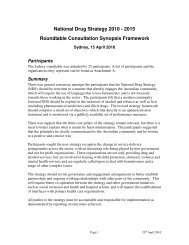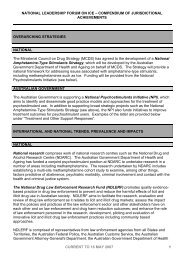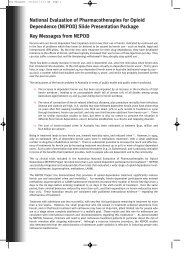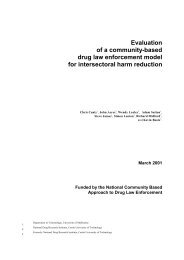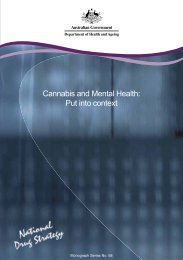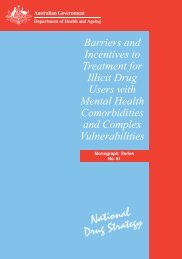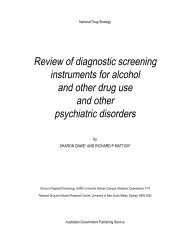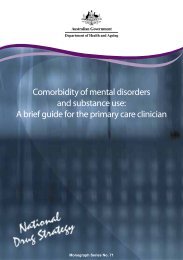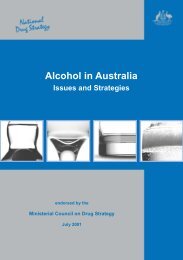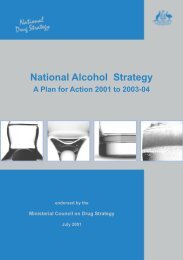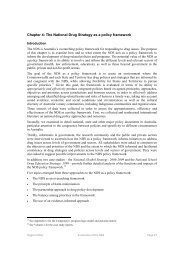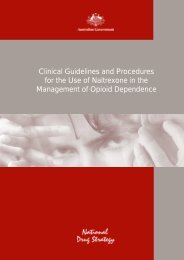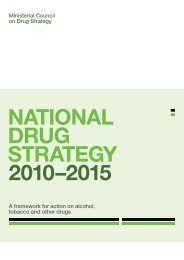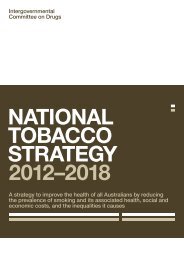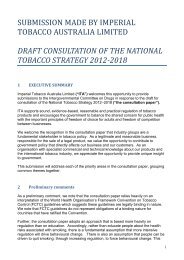A Guide for Frontline Workers - National Drug Strategy
A Guide for Frontline Workers - National Drug Strategy
A Guide for Frontline Workers - National Drug Strategy
You also want an ePaper? Increase the reach of your titles
YUMPU automatically turns print PDFs into web optimized ePapers that Google loves.
Therapeutic communities<br />
What are therapeutic communities<br />
Therapeutic communities (TCs) are residential programs where people live and work<br />
in a community of other users, ex-users and professional staff. Programs can last<br />
anywhere between 1 to 12 months or more.<br />
The aim of therapeutic communities is to help people build up the skills and<br />
attitudes to make positive, long-term changes towards a drug-free lifestyle. A<br />
program will usually include activities such as employment, education and skills<br />
training, life skills training (e.g. budgeting, cooking), counselling, group work,<br />
relapse prevention training, and a ‘re-entry’ process where people are helped<br />
return to their community.<br />
Issues to consider about therapeutic communities<br />
Most therapeutic community programs are quite structured and have well defined<br />
rules. People who dislike rules and regulations may find them unsuitable and this<br />
might be why drop-out rates in the early weeks are high. For other people, a<br />
therapeutic community can provide the support and security they need that is not<br />
otherwise available in their usual environment.<br />
Not all therapeutic communities take the same approach – some may have a<br />
religious base, a 12-step program (Narcotics Anonymous), a total abstinence goal or<br />
a harm-minimisation-on-the-way-to abstinence approach. Some therapeutic<br />
communities may include naltrexone treatment as part of their program. It all<br />
depends on where a person chooses to go and what they feel they need.<br />
People should find out as much as possible about a program be<strong>for</strong>e they decide to<br />
enter, so they choose one that best suits and know what to expect. Many of the<br />
programs have web sites, and people might like to talk to others who have been<br />
through the program.<br />
Even though therapeutic communities may not be as popular as other types of<br />
treatment (e.g. substitution treatment with methadone), research shows that <strong>for</strong><br />
those people who complete a therapeutic community program, heroin use and crime<br />
are reduced, and employment opportunities increased.<br />
17



